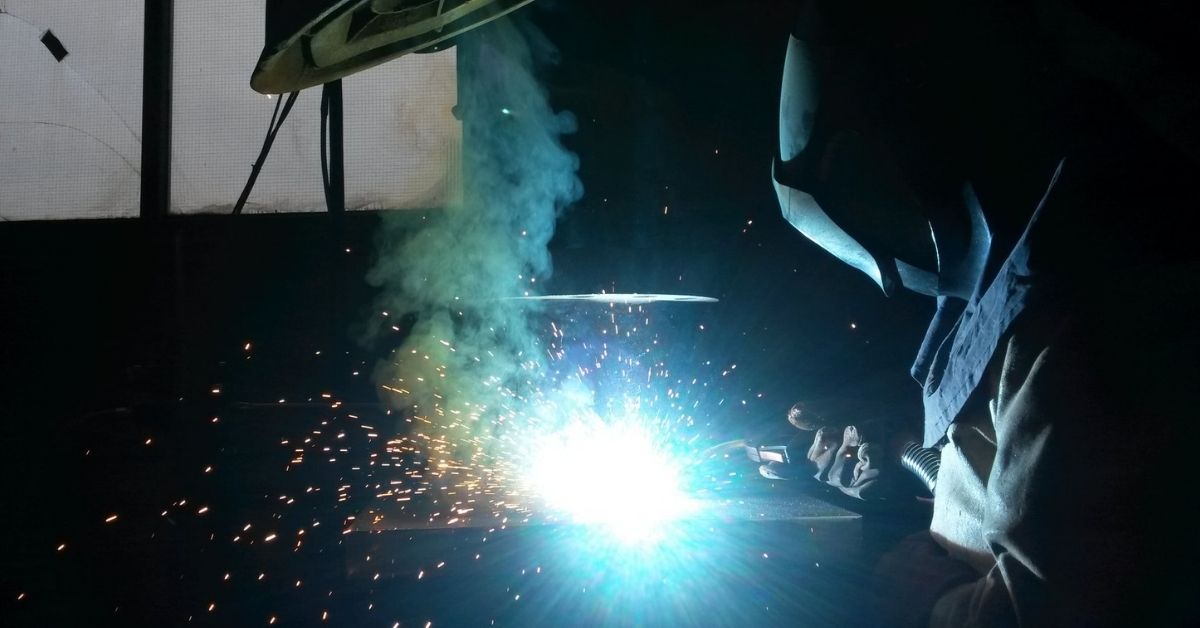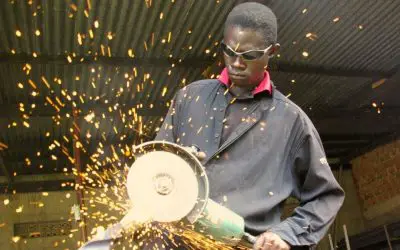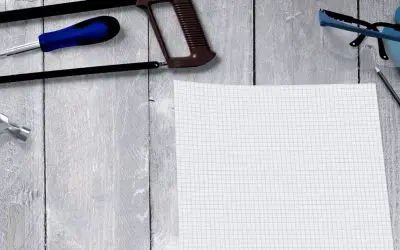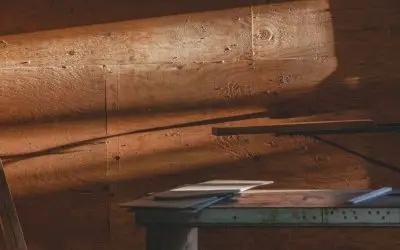Share

To protect your investment, you should take steps to prevent rust from forming before it’s too late. We will discuss how to keep a welding table from rusting so that you never have this problem again!
Welding tables are often left outside and exposed to the elements. This can lead to significant rust damage on your welding table, which is a safety hazard for anyone using it.
6 Tips: How to Keep a Welding Table from Rusting
1. Remove Your Welding Table from the Weather
Make sure your welding table is not exposed to rain, snow, or any kind of moisture if you want it to last a long time. If possible, place it inside a garage or some other structure that will protect its surfaces and edges from exposure. This may be more difficult for those with large custom tables since they can be very heavy, but it’s worth the effort.
2. Keep Your Welding Table Clean and Dry
Always wipe down your welding table with a dry cloth to remove any dust or dirt that may cause rust damage over time. Suppose you are using your welding table on some kind of construction site. In that case, this is especially important since materials like concrete are often abrasive, which will wear away at its surfaces over time.
It also helps maintain the smoothness of these welded tables, so they don’t catch clothes and tools as easily when people use them for extended periods of time. Depending on how dirty it gets from general usage, we recommend giving it a good wash every couple of months just in case!
3. Spread Some Oil on the Welding Table
If you’re a welder, it’s important to keep your welding table oiled. The best way to do this is by applying light machine oil, or even standard cooking spray to work in a pinch!
This prevents rust from forming and makes cleaning off dirt and dust much easier so that they don’t get ground into the surface over time. If possible, use an offshore marine-grade lubricant for extra protection during heavy downpours when higher levels of humidity are present, which could corrode surfaces faster than usual.
4. Avoid Using Salt Water Around Your Welding Tables
Saltwater is especially corrosive due to its high salt content since it will be attracted towards metallic objects like steel corrosion.
If you plan on using your welding table near the ocean or some other large body of saltwater, be sure to wash it down with fresh water after strong rains to remove all traces of salt and any animal droppings that may have accumulated due to high levels of pigeons around these sites.
This is especially important during coastal storms since the winds will blow considerable amounts of sand and sea spray onto surfaces which can cause significant damage over time if not washed off immediately!
5. Keep Your Welding Table Indoors During Winter Months
During the winter months, when snowfall occurs, make sure you keep your welding table indoors where possible.
Snow accumulation combined with longer periods at lower temperatures increases its rate of corrosion by acting as a magnifying glass for ultraviolet rays in the atmosphere, which will cause these surfaces to rust faster than usual.
6. Use Protective Covers when Not in Use
When your welding table isn’t being used, make sure you cover it with a protective tarp or sheet of plastic that is large enough to protect both its top and edges from exposure during wind storms and other inclement weather conditions for extra protection against rust formation.
If possible, use clear covers made out of durable polyethylene so you can still see where everything is without having to lift it up every time!
These are especially important if you have larger custom tables since they may be too heavy for one person to move around easily between storage locations. Larger home depot bbq grills come with protective covers to protect from the weather.
These six tips will help keep your welding table in prime working condition so you can get back to work as quickly as possible!
Also, check this video to know more about keeping your welding table clean:
Remember that prevention is always better than a cure when it comes down to preventing these surfaces from rusting! You can also read our blog on how to wear a welding cap to protect your face while you weld.



0 Comments